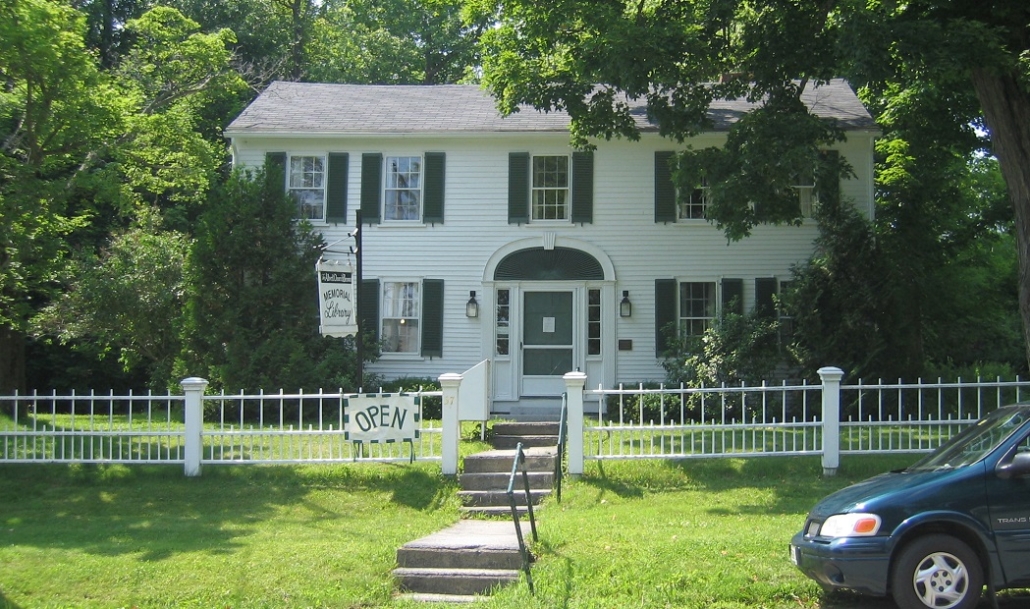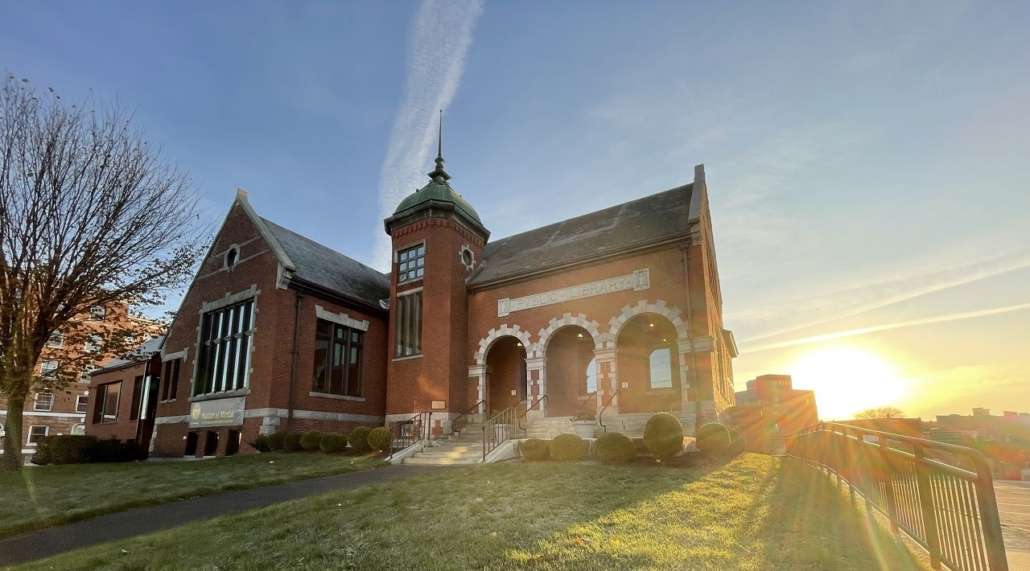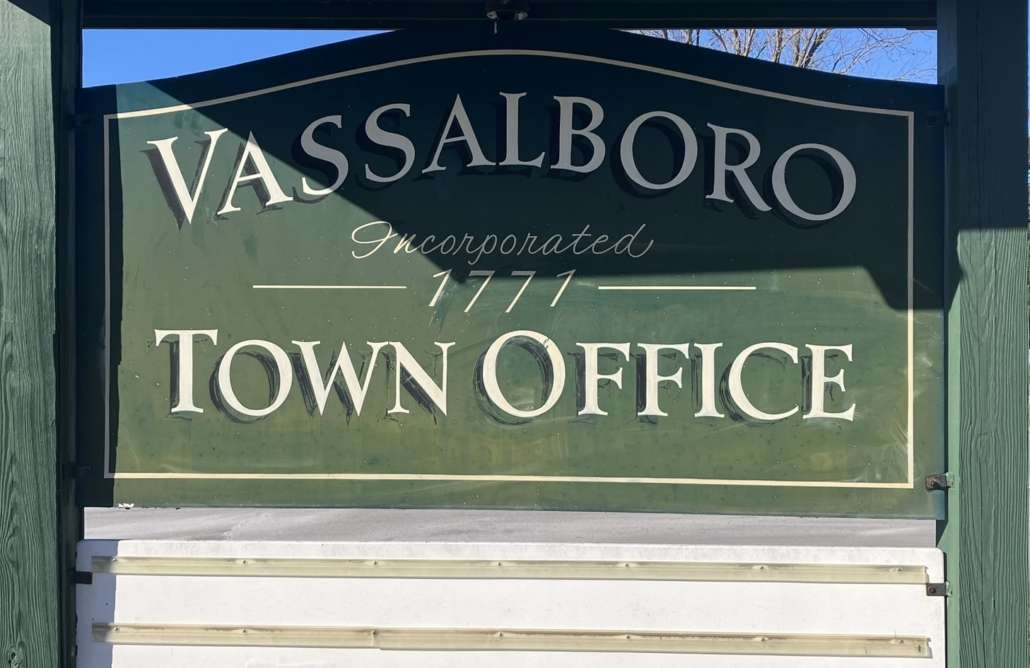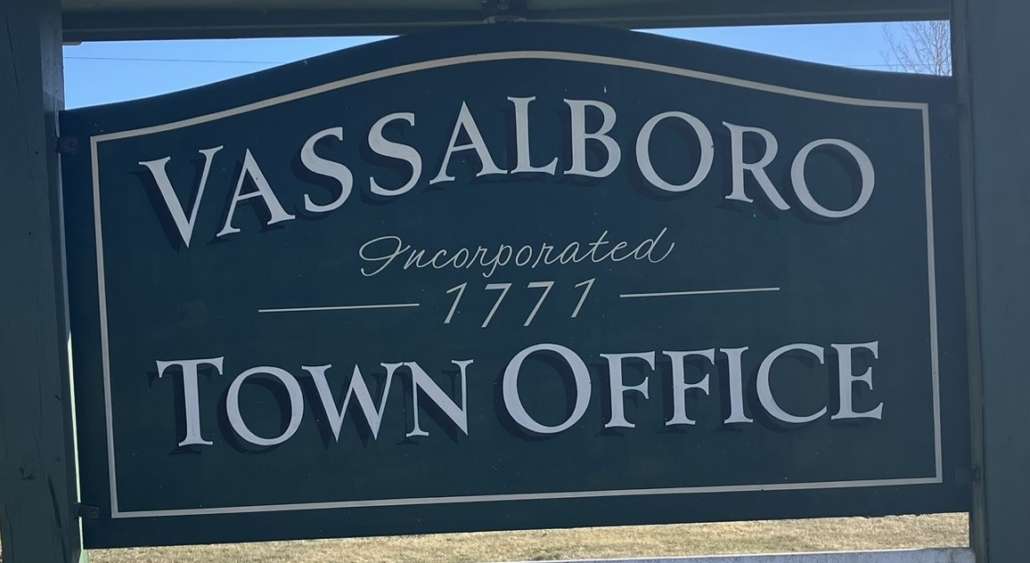After reviewing pieces of the proposed 2024-25 town budget at their regular meeting Feb. 22, Vassalboro select board members scheduled a special meeting for 6:30 p.m. Thursday, Feb. 29, to continue discussion.
Two decisions were made Feb. 22.
— Town Manager Aaron Miller said he had postponed his proposal to hire a part-time town office staff member, given the difficulty of finding candidates for the position. Select board members did not argue.
— Paying for a membership in the Kennebec Valley Council of Governments was deleted. Board chairman Chris French said he saw no need for the organization’s help in 2024-25.
Board members reduced the proposed 2024-25 paving budget. They agreed to buy a skidsteer, to plow North Vassalboro sidewalks beginning next winter and for other, year-round uses, and to budget the first of three installments for a new loader. No public works department representative was at the Feb. 22 meeting.
They considered a proposal to offer family health insurance to town employees. Miller said five employees would be interested. French sees offering the coverage as a way to keep Vassalboro competitive in the job market.
There was consensus that adding family coverage to present policies is not necessarily the way to go; more options will be explored.
Conservation Commission spokesman Holly Weidner said the China Region Lakes Alliance (CRLA), for which $13,500 was recommended, is inactive for lack of an executive director. There is a proposal that China and Vassalboro lake associations take over the CRLA’s Courtesy Boat Inspection (CBI) program, with the Conservation Commission coordinating and getting the $13,500.
The proposed appropriation was labeled water quality and its place in the budget left undetermined while, Miller said, he “figures out what’s going on.”
Weidner said over the years CBI inspectors have found and removed fragments of invasive weeds on boats being brought to China and Vassalboro lakes and ponds.
Select board members’ recommended budget will be reviewed by the budget committee. Voters will make the final decisions at the June 3 annual town meeting.
The Feb. 22 meeting started with a public hearing on a revised solid waste ordinance, now renamed the Solid Waste & Recycling Ordinance. There were no public comments. This ordinance, like the budget, will need voters’ approval.
A second public hearing was on an application for a junkyard license for the property at 1499 Riverside Drive, which includes a junkyard and a business named ABC Fuel. There was agreement to consider the junkyard and the fuel business as separate, even though they’re on the same site.
Codes officer Jason Lorrain said although the application is for a junkyard license renewal, he considers it a new license, because, he said, former owner Olin Charette’s son is the current owner.
On Lorrain’s recommendation, select board members unanimously approved the junkyard license. Lorrain said the new license has the same conditions, like requiring screening, that previous ones had.
From the audience, planning board member Douglas Phillips said ABC Fuel needs a site review permit from the planning board as a new business.
In other business, select board members continued discussing with Lorrain, Phillips and Miller what changes, if any, need to be made in town ordinances to comply with the new state law commonly called LD 2003.
Intended to promote affordable housing, LD 2003 loosens density requirements in some parts of municipalities to allow one or two ADUs, Accessory Dwelling Units, to share a lot on which a single house currently stands.
There was agreement on two points: the law would not allow increased housing density along Vassalboro’s lakes and ponds, because shoreland zoning limitations would prevail; and the relevant document in Vassalboro is the town’s eight-page Building Permit Ordinance, not the Site Review Ordinance.
Miller said there are evidently two options: propose amendments to the Building Permit Ordinance for voters’ approval, or take no action, in effect leaving compliance with state law to the codes officer.
The codes officer, rather than the planning board, has primary responsibility for the Building Permit Ordinance. Lorrain has been studying the issue and presented some questions for select board discussion.
An ordinance amendment, if the chosen choice, would require a public hearing and a town vote. Renewed discussion was postponed until May, after board members finish preparing the 2024-25 budget.
Open letter to Maine legislators
The following letter was sent to all Maine legislators from Vassalboro Town Manager Aaron Miller:
Feb. 21, 2023
Dear Legislator,
I am writing to you today as a member of Delta Ambulance’s Board of Directors, Town Manager of Vassalboro, first responder for Whitefield, and resident of Alna.
Faced with inadequate funding, EMS agencies in Maine have struggled for years to keep their heads above water. In the years since the start of the COVID-19 pandemic, many of those services have been pushed beyond their tipping point.
Staffing shortages were exacerbated by delays in new EMS clinician graduations and agencies were subsequently forced into wage wars to recruit and retain existing field providers. Payroll along with other operating costs rose to levels never seen before while insurance reimbursements, the backbone of EMS funding, stagnated.
The Blue Ribbon Commission extensively studied EMS services across Maine and identified a large gap between reimbursement and expenses. The Commission recommended a dispersal of $70 million each year for five years to all of Maine’s transport services. Despite the Commission’s recommendation and clear demonstration of need, less than half of the $70 million was approved for a one-time infusion, and only $10 million was allocated for emergency funding. Furthermore, transporting services like Delta were capped at receiving no more than $200 thousand – an amount that quite frankly will do nothing for sustainability.
For the first time since 1972, Delta, which currently provides 911 coverage to 13 towns in the greater Augusta and Waterville regions, recently instituted service fees of $15 per capita to towns receiving their 911 coverage. At the end of last year, Delta announced that the per-capita charge will increase to $25 per capita for 2024 and that by 2025, it will fall somewhere in a range between the mid-thirties to seventies depending on other factors. These numbers reflect the necessary changes to reach a break-even budget.
Just recently, municipal officials in the towns of Albion, Benton, China, Fairfield, and Oakland have cited a “fiduciary responsibility” to their citizens and are asking for a reduced rate of $20 per capita this year – an amount that cannot be accommodated by Delta. If the BRC’s recommended amount had been approved and released promptly, it would have allowed for a slower per-capita rate increase and lessened the blow to towns already facing financial challenges of their own.
The funding was announced seven months ago. Delta still hasn’t seen any of these funds despite a successful application submission which was not made available until December. Can you please let us know when we can expect to receive these funds? What are the plans to effectively address the statewide issue and how will this be accomplished in a timely manner?
Sincerely, Aaron C. Miller
 by Mary Grow
by Mary Grow



 The Waterville Public Library has announced the 2024 launch of the Waterville Seed Library. This entirely free public resource features 30 varieties, including tomato, pumpkin, summer lettuce mix, green beans, and more. Beginning on Saturday, March 16, 2024, while supplies last, garden seed packets can be picked up at the Waterville Public Library, at 73 Elm Street, Waterville. A free Paint a Plant Pot and Plant Basil craft program for youth will be offered on Saturday, March 16, from 1:30 to 2:30 p.m.
The Waterville Public Library has announced the 2024 launch of the Waterville Seed Library. This entirely free public resource features 30 varieties, including tomato, pumpkin, summer lettuce mix, green beans, and more. Beginning on Saturday, March 16, 2024, while supplies last, garden seed packets can be picked up at the Waterville Public Library, at 73 Elm Street, Waterville. A free Paint a Plant Pot and Plant Basil craft program for youth will be offered on Saturday, March 16, from 1:30 to 2:30 p.m. China Town Clerk Angela Nelson reported the following results from Tuesday’s primary election.
China Town Clerk Angela Nelson reported the following results from Tuesday’s primary election.

 by The Town Line staff
by The Town Line staff